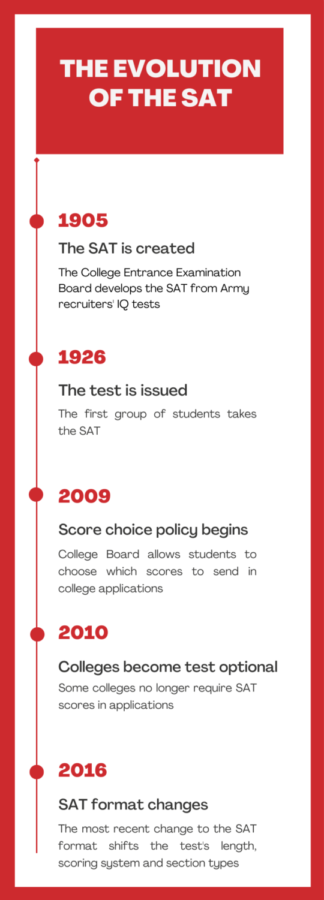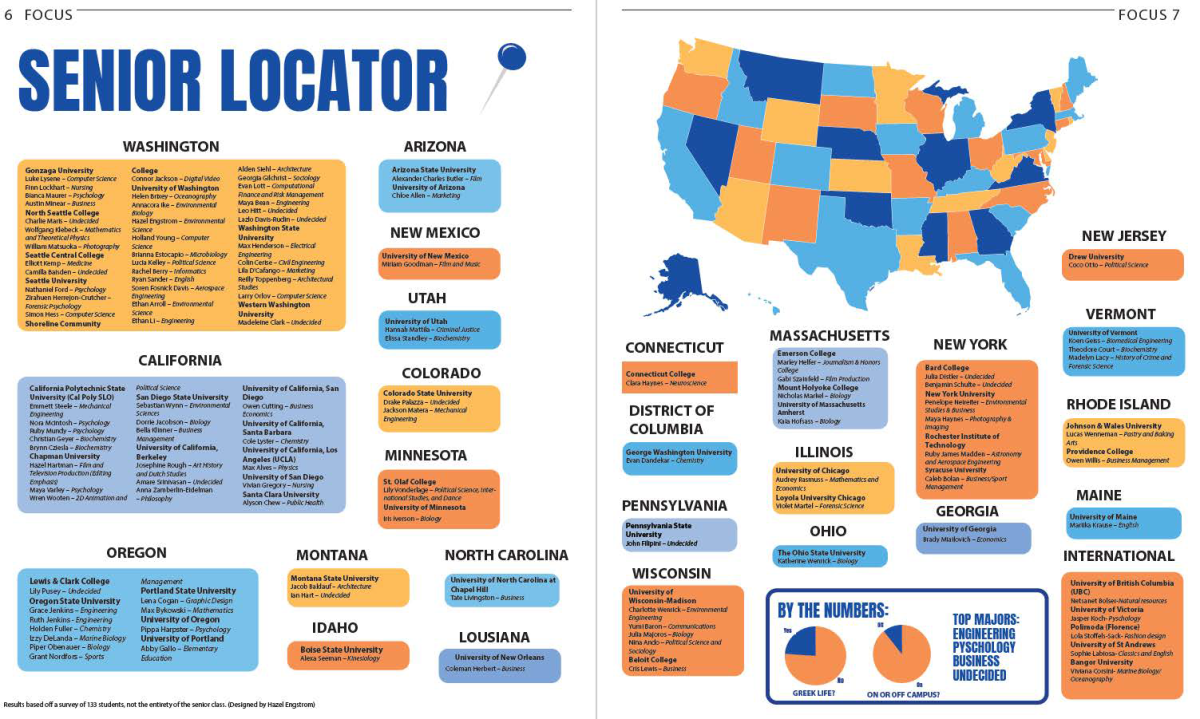Breaking down the SATs
Students respond to new SAT policies
November 7, 2022
One of the most common burdens associated with high school students is standardized testing. These tests have long been used to measure student intellect, and they’ve represented a key method for how students present themselves to prospective colleges.
This long standing system has persisted, despite many considering it an inaccurate representation of a student’s high school career.
Because of COVID-19, many students were unable to take the SAT during the 2020-2021 school year. This resulted in most colleges removing SAT and ACT requirements on college applications.
This test “blindness” has lifted a weight off of many students, allowing them to see the test as merely a way to boost their applications if they receive good scores.
Senior Asher Seibel, ASB vice president, felt strongly that the SATs are an inferior test to the ACT. He has his sights set high and plans to attend Cornell University to study cognitive science.
Seibel preferred the ACT largely because it includes a science section in addition to math and reading sections. It also takes place during a shorter time block, a shorter three hours to the SAT’s overwhelming four.
Seibel also believes the SAT is not a useful measure of intellectual ability.
“The test measures 70% testing skills and 30% real intellect,” Seibel said.
Seibel claims that his parents were supportive but not too persistent about the value of standardized tests which has given him space to learn his own persistence. The tests are often inconveniently far away, another barrier. Seibel feels that if his parents had not been willing to drive him to every test, he may not have been able to take the tests.
Senior Leah Robinson feels quite differently about the burden of SATs and the hold they will have on her future.
She is eager to leave high school behind and attend a college of her choice in a much warmer climate like Arizona or Southern California, due to her discontent with Washington’s less “friendly” weather.
Because her preferred schools are test optional or blind, she feels no need to exert herself with worry over her score. Like Siebel, she has been studying using the free resources provided by Khan Academy and anticipates doing well, as she sees herself as a strong test taker.
“If I do good, I do good. If I do bad, I do bad,” Robinson said.
Senior Helen Richardson took her SATs this October 2022. Richardson will submit her college applications this November in order to be considered for early admission to her top schools: Arizona University, Western Washington University, University of Washington, and her top choice, California Polytechnic State University. Her main motivation for taking the SATs was the requirement of her top school, Cal Poly.
“Cal Poly has a great architectural program, which I am extremely interested in,” Richardson said.
Richardson was incredibly nervous about her SATs and felt that admission into her top school is highly dependent on getting a good score.
She also felt that with many of her friends taking the SATs, they all were able to share the burden of this stress-inducing test. Despite this, Richardson does feel that the SAT is just a test and does not accurately represent her last four years of demanding work. She felt that her family was very supportive and encouraging regarding the SATs.
“My parents always told me, ‘you have your own opinion, and we are not going to force you to take this test, just encourage you,” Richardson said.
Richardson knows the test is important for her application but will not let it define her academic achievements. She is excited about applying to colleges and seeing what the future has in store for her.
“I am ready to leave high school. It will be hard to leave my friends and family, but I am excited for college; it’s a new chapter,” Richardson said.
Senior Fin Kusik shared some more thoughts on the SATs. Kusik, who has already taken the SATs twice, will be applying to New York University, Boston University, University of California Santa Cruz, and University of California Berkeley.
All the universities that Kusik is applying to are test optional, but he feels that through the use of Khan academy, SAT study booklets and being a confident test taker, the SATs could potentially be a good addition to his college applications.
Kusik shared his best test taking tips, which include self-confidence and following your instincts. He does feel however that the SATs aren’t extremely accurate.
“It’s not a measure of you or how smart you are,” Kusik said.




















